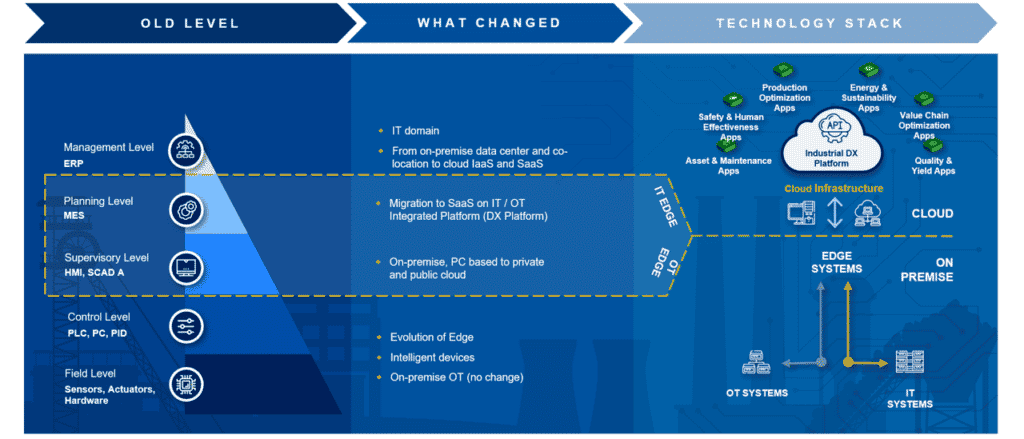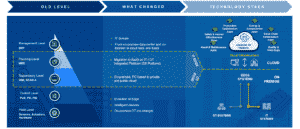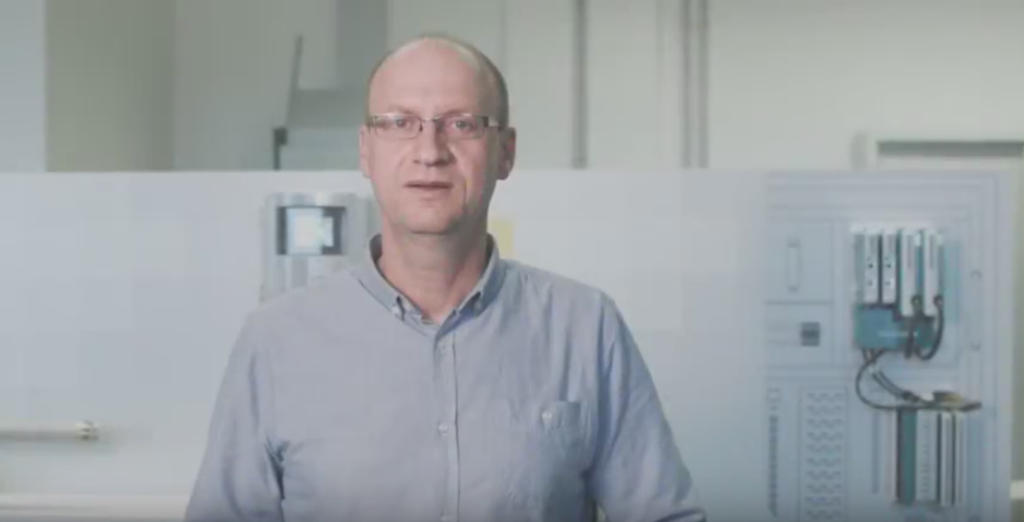As much as we discuss the possibilities and opportunities afforded by digital transformation, automation still begins with technical processes in the field and control room. But technological development goes beyond classic automation with the pyramid structure. Robust automation technology is more and more often converging with IT. A few years ago, it wasn’t considered stable and secure enough for production plants. Demand for more flexibility in production proves this to be true more than ever. Architectures are becoming more modular and decentralised, and they don’t compromise in terms of functional or cyber security either. This also has to be preserved in Industry 4.0, regardless of whether the concept is so modular and decentralised.
Networking allows companies to realise economically attractive production and business processes
Today, individual production plants are already integrated into a complex network where automation and information technology are often converging. This networking is necessary to allow companies to realise economically attractive production and business processes. More flexibility and efficiency will be unlocked by integrating data beyond operations, locations, companies, and value chains.
Remote connections enable remote maintenance, centralised operation and monitoring, and support for maintenance services through mobile devices.
Open and secure
As a result, networks are becoming ever more complex and are also managing to process more data for further applications. But our automation pyramid isn’t designed for the wide range of new possibilities and required use cases. So, we have to open and secure them in applications where they add value.
Overall, a higher degree of connectivity has to be achieved in the process industry. The target is to realise fast, decentralised data processing at the edge of the automation pyramid. Assets from the field of a process plant with additional non-process relevant diagnostic data from the IIoT have to be combined with consistently large volumes of data.
The infrastructure of a network, no matter how functional its design, must not be the bottleneck when transferring these volumes of data to higher-level cloud solutions. Edge systems, adapted to the needs, particularly to the new process automation applications, offer reliable, customer-specific solutions for preventing data bottlenecks and chaos.
Besides the general secure opening of automation structures, edge systems also enhance production with smart manufacturing use cases.
Smart maintenance – integration of IIoT networks and implementation of digital industry services
Global remote operation concepts combined with mobile operations
Optimisation based on AI and machine learning
Flexible production through simple integration and orchestration of process modules
For companies from the process industry, the transition to an architecture opened by edge systems offers the chance to optimise production and business processes. It also allows unlocking and boosting the value of existing systems and data. An industrial cloud architecture reflects the interaction of existing and future designs by adapting plant and business processes to the value chains. Unlike traditional concepts, DX architecture is based on market requirements and customer experiences. It ranges from applications and business processes to hardware and data. Yokogawa supports its customers in implementing this architecture with a wide range of services, including consulting, application technology, system integration, provision, training and maintenance, and more.






